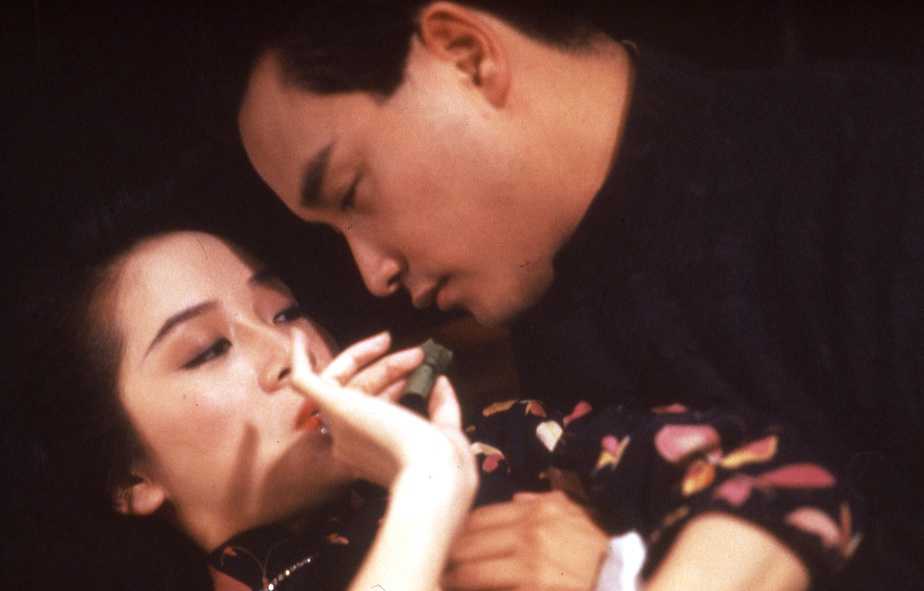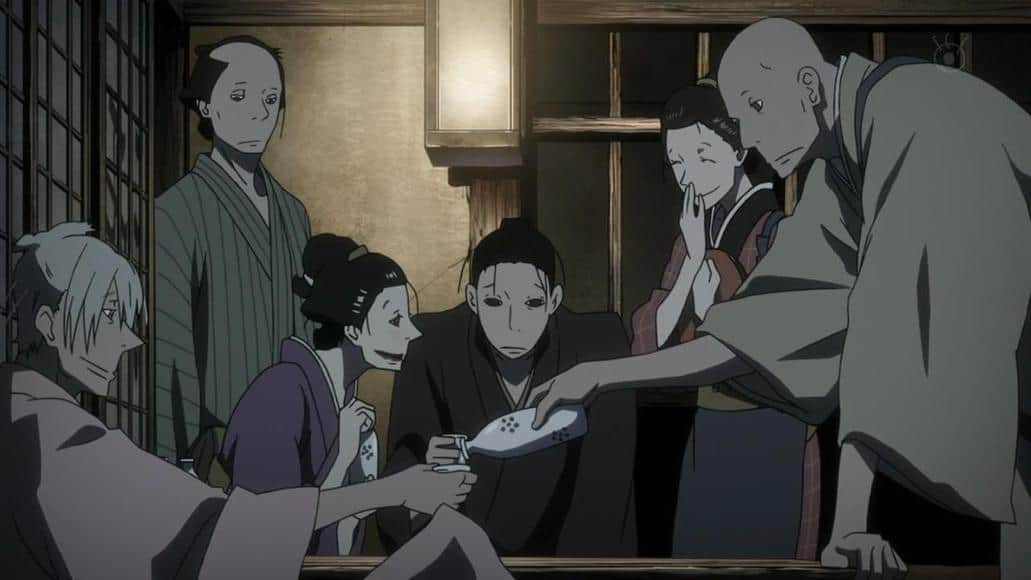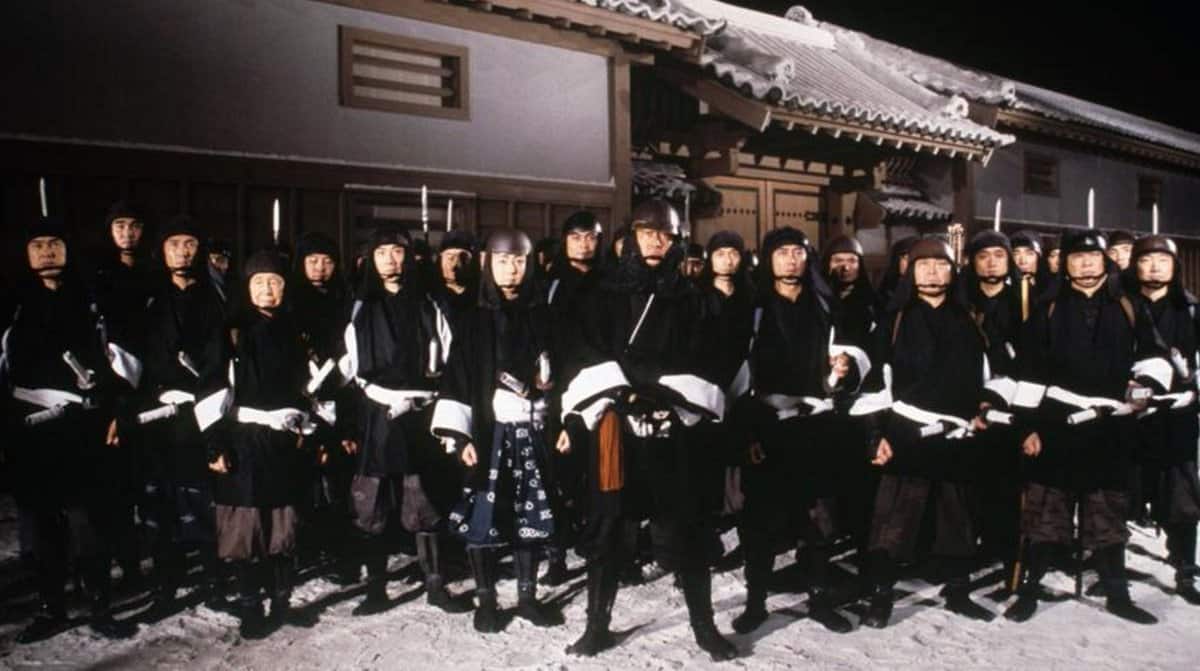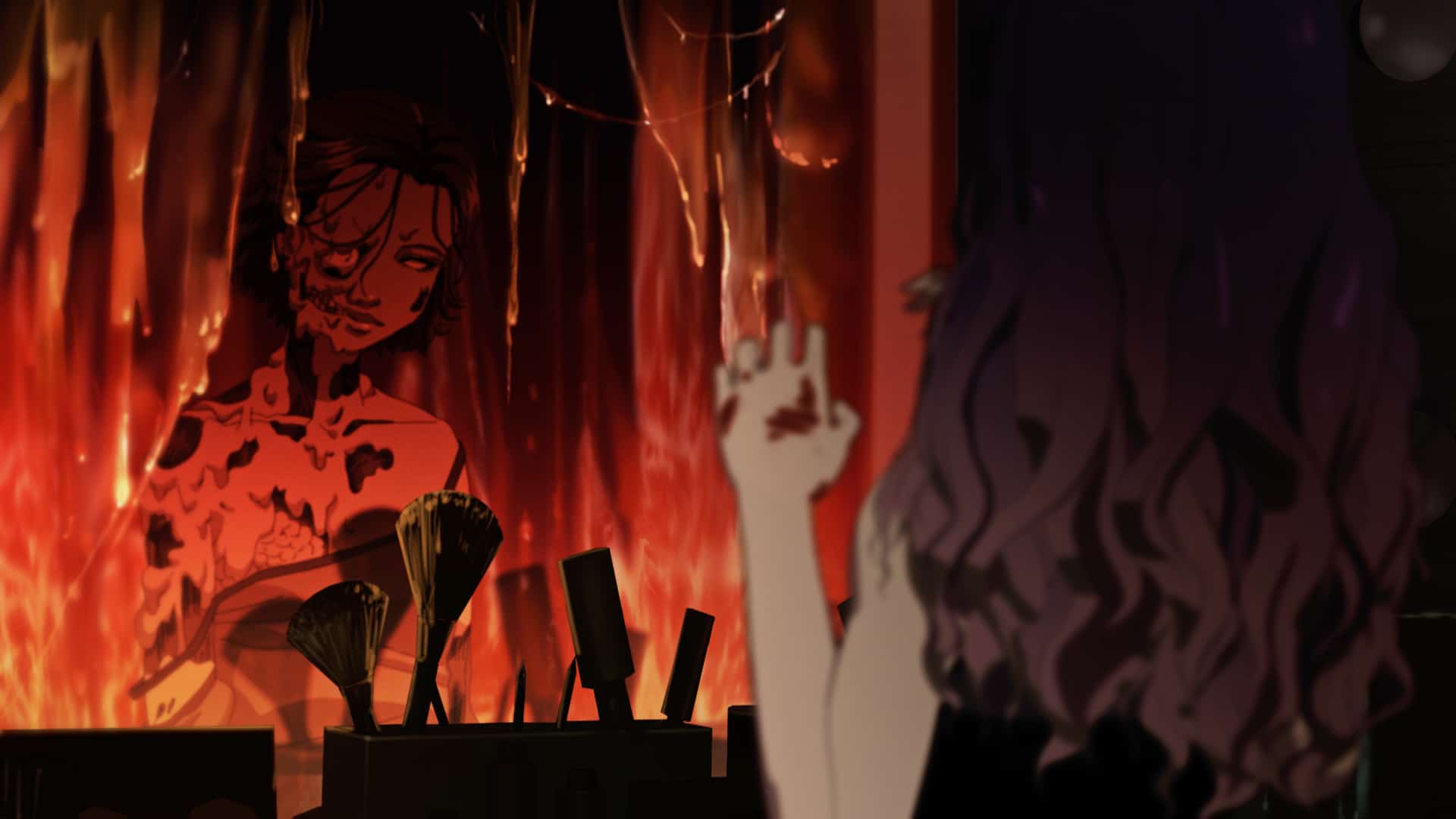Having a movie that revolves around a tragic love story whose actual protagonists and Hong Kong cinema legends tragically died 15 years later (Leslie Cheung committed suicide and Anita Mui died of cervical cancer, both in 2003) have deemed “Rouge” a legendary film. Apart from its non-cinematic significance, “Rouge” was an international and local success, winning six awards in from Hong Kong festival (including ones for Best Picture, Director and Actress) and a plethora of others in festivals all over the world.
The script is based on the homonymous novel by Lilian Lee, and unfolds in two periods. The first one takes place during 1934, when we are introduced to Fleur, a high-class, extremely popular courtesan and Chan Chen-pang, a rich playboy who frequented the opium dens of Hong Kong at the time. The two meet and soon fall in love, but his family objects to the affair. In their desperation, the two lovers decide to commit suicide and meet again in the afterlife.
The second period takes place 50 years later, when a disgruntled Fleur, that has been waiting for her lover all that time, decides to return to the world and search for him. She decides to place a newspaper advertisement for that purpose, and she ends up receiving help by the owner, Yuen, and his initially suspicious girlfriend, Chor.
If one were to use three words to define “Rouge”, they would definitely be nostalgia, drama, and style. The first term revolves around Hong Kong and the huge changes it experienced in the 50 years the story unfolds in, with Stanley Kwan filling the narrative with a rather romantic and somewhat glorified image of the past, at least regarding the courtesans and the opium dens. “People used to pay to touch my neck,” says Fleur to Yuen at one point, in a rather indicative statement of this particular aspect. Drama, however, is what remains from both timelines, with the glorification of the past eventually giving its place to the harsh realization of the then societal norms, while the film's finale cements this element in the most impactful way.
Style refers mostly to the visuals of the movie, although the pretentiousness both Leslie Cheung and Anita Mui portray their characters with in the past arc is one of the style-defining factors of the film. Bill Wong's cinematography captures the essence of both time frames, (the “lazy”, opium filled, seemingly idyllic of the past and the rather “flat” of the present) with artistry and realism. His images benefit the most by both acting and appearance of the two protagonists, while the way particularly Anita Mui is framed could be described as the visualization of a love poem, whose writers are both the cinematographer and the director. Furthermore, she thrives though this approach, highlighting a number of opposite character traits (happiness, sadness, despair, cockiness, and “submission”) with the same artistry, in a truly great performance that anchors the film as much as her beauty. Leslie Cheung is also quite good in his playboy pretentiousness, although the center stage is reserved for Mui. In comparison, Alex Man as Yuen and Emily Chu as Ah Chor seem rather flat, but then again their part is mostly complimentary, although their interaction with the ghost that invades their lives is the main source of the minor comedy elements in the film.
The score and the main theme, written by Lai Tin-Siu and performed by Anita Mui are also great, in perfect resonance with the film's aesthetics. Peter Cheung's editing allows the film to unfold in a relatively slow pace, that seems to suit the first arc better, but in general, works quite well with the general style of the movie.
Not much more to say, “Rouge” is one of the best movies ever to come out of Hong Kong, a triumph of style and drama, and a must-watch for every fan of cinema.















